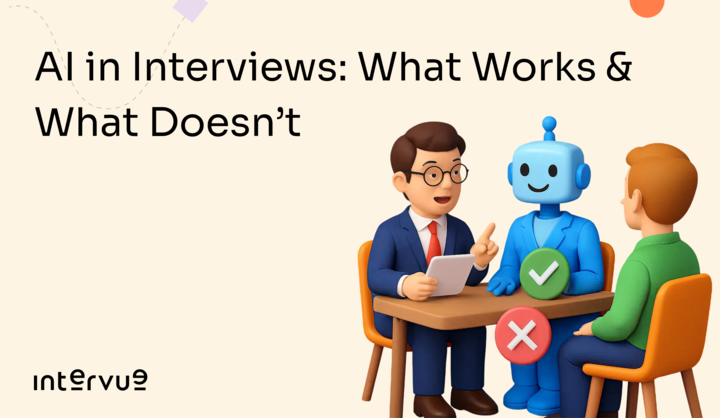Career Stages: Understanding the Journey of Professional Growth

No matter where you are in your professional journey, the concept of "career stages" offers a roadmap to navigate your path toward success. From entry-level positions to leadership roles, understanding the stages of career development can help you set realistic goals, identify potential roadblocks, and build strategies to thrive.
Let’s dive deep into this fascinating topic, break it down step by step, and uncover actionable insights for your career growth.
What Are the 5 Stages of Career Development?
Career development is often viewed as a cycle or progression through specific stages. It’s much like climbing a staircase, with each step representing a new phase of growth, challenges, and opportunities. By understanding these stages, you can better plan your journey and make informed decisions about your career trajectory. Let’s explore the five universally recognized stages of career development, along with relatable examples to illustrate each.

1. Exploration Stage
The exploration stage is all about discovering your interests, skills, and values. It’s typically experienced during high school, college, or the early years of employment when you’re figuring out what you’re passionate about and what kind of work aligns with your strengths. At this stage, the focus is on learning and experimenting—trying out internships, taking on part-time jobs, and seeking mentorship.
Think of it as a trial-and-error phase. You’re not expected to have all the answers yet, and that’s okay. For example, a college student majoring in computer science might intern at a tech company to explore if software development truly excites them. Alternatively, someone pursuing a degree in business might work as a marketing intern to see if they prefer analytics or creative strategy.
The exploration stage is also a time for building foundational skills. Communication, problem-solving, and teamwork are just as important as technical expertise at this point. The goal is to gain a deeper understanding of the possibilities that lie ahead and start narrowing down your options based on what resonates most with you.
2. Establishment Stage
Once you’ve chosen a career path, the establishment stage begins. This is where you secure your first full-time job, start building expertise in your field, and strive to make a name for yourself. It’s an exciting yet challenging phase, marked by a steep learning curve and the need to prove yourself as a reliable and competent professional.
During the establishment stage, individuals often focus on setting short-term and long-term goals. For instance, a recent graduate who lands their first job as a junior data analyst might aim to learn advanced analytics tools within their first year and aspire to lead a project within two years. Success at this stage often requires dedication, adaptability, and a willingness to go the extra mile.
It’s also a time for networking. Building relationships with colleagues, mentors, and industry peers can significantly impact your career progression. Moreover, seeking feedback from supervisors and peers can help you identify areas for improvement and ensure you’re on the right track.
3. Mid-Career Stage
The mid-career stage is where many professionals begin to assess their progress and redefine their goals. This stage is about growth and stability. You might find yourself asking questions like: “Am I happy in my current role?” “Do I want to specialize in a niche area?” or “Should I consider a career pivot?”
Specialization is often a focus during this phase. For example, an HR manager might decide to deepen their expertise in talent acquisition by pursuing certifications or attending workshops. Alternatively, some individuals may explore lateral moves to gain experience in different functions, thereby broadening their skill set.
This stage can also bring challenges such as balancing work with personal responsibilities, dealing with workplace dynamics, or overcoming mid-career plateaus. Professionals who successfully navigate this phase often do so by staying open to learning, seeking mentorship, and maintaining a proactive approach to career development.
4. Late-Career Stage
Late-career professionals are typically well-established in their fields, enjoying the fruits of their labor. This stage is less about climbing the ladder and more about maintaining relevance, sharing knowledge, and finding fulfillment. Many individuals at this stage take on mentoring roles, helping younger professionals navigate their paths.
For example, a senior engineer might dedicate time to coaching junior colleagues, sharing best practices, and contributing to organizational goals through strategic input. It’s also a time for reflection. Late-career professionals often look back on their achievements, consider their legacy, and plan for the transition to retirement.
This stage can be incredibly rewarding but may also come with challenges like staying updated with technological advancements or adjusting to a reduced workload. Finding ways to stay engaged—such as consulting, volunteering, or pursuing hobbies—can make this phase fulfilling.
5. Decline or Retirement Stage
The final stage of career development involves stepping back from active work life. For some, this means full retirement; for others, it might involve transitioning to part-time roles, consulting, or engaging in community work. This phase is about redefining what success and happiness look like beyond the professional realm.
For instance, a retired teacher might find joy in tutoring students part-time or volunteering at a local school. Similarly, a former corporate executive might offer consulting services to startups, sharing insights from years of experience.
Retirement doesn’t have to mean an end to growth. Many retirees discover new passions, take up creative pursuits, or dedicate time to causes they care deeply about. The key is to approach this stage with an open mind and a sense of purpose.

Reasons for Getting Stuck in Certain Career Stages
While the career development cycle offers a clear structure, many professionals find themselves stuck at various stages. This isn’t uncommon, and recognizing the reasons behind these roadblocks is the first step to overcoming them. Let’s explore some common reasons and how they impact growth in career.
Lack of Clear Goals
Without well-defined career milestones, individuals can feel directionless and lose momentum. This is especially common during the exploration stage when uncertainty about one’s interests and strengths can be overwhelming. Imagine a fresh graduate who hasn’t yet identified what excites them. They’re likely to bounce between roles without a clear sense of purpose, leading to frustration and stagnation.
Fear of Failure
At the establishment or mid-career stages, fear of taking risks—such as pursuing a promotion or changing industries—can lead to stagnation. Many professionals prefer staying in their comfort zones, even if it means giving up on growth opportunities. Overcoming this requires building self-confidence and embracing the idea that failure is a stepping stone to success.
Skills Gap
Rapid changes in technology and industry trends can make existing skills obsolete. Professionals in the mid-career stage may find it challenging to progress if they haven’t updated their knowledge. For instance, a marketing professional who hasn’t adapted to digital tools and analytics may struggle to stay relevant in a tech-driven market.
Work-Life Imbalance
Burnout can prevent professionals from advancing, especially if their current stage demands excessive time and energy. A demanding workload might leave little room for skill-building, networking, or personal growth, creating a vicious cycle of stagnation.
Organizational Barriers
Sometimes, external factors like lack of growth opportunities within a company or poor workplace culture can hinder career progression. For example, a talented employee might remain stuck in a role because their organization doesn’t prioritize internal promotions or professional development.
8 Effective Strategies for Career Advancement
Now that we’ve discussed why people get stuck, let’s look at some proven steps in career development that can help you overcome barriers and advance your career.
1. Set SMART Goals
Specific, Measurable, Achievable, Relevant, and Time-bound (SMART) goals can provide clarity and direction. Whether it’s achieving a promotion or switching industries, clear goals are the foundation of career growth and development.
2. Invest in Lifelong Learning
Continuous learning is essential for staying relevant in today’s fast-paced job market. From online courses to industry certifications, there are countless ways to enhance your skills.
3. Build a Strong Professional Network
Networking can open doors to new opportunities. Attend industry events, join online communities, and cultivate relationships with mentors and peers.
4. Seek Feedback and Act on It
Feedback is a powerful tool for growth. Regularly ask for constructive feedback from colleagues, managers, or mentors and use it to improve your performance.
5. Embrace Challenges
Taking on challenging projects or roles can push you out of your comfort zone and accelerate career progression.
6. Maintain Work-Life Balance
Burnout is a major obstacle to career advancement. Ensure you’re taking care of your mental and physical health alongside your professional aspirations.
7. Leverage Career Milestones
Celebrate achievements, no matter how small, to stay motivated and track your progress through the career development process.
8. Develop Soft Skills
While technical skills are important, soft skills like communication, adaptability, and teamwork play a crucial role in career progression.

Wrap-Up
Everyone's journey through the career life cycle is unique, but understanding the stages of career development can help you navigate it with confidence. Whether you’re in the exploration stage or preparing for retirement, each phase offers opportunities for growth and learning.
You can overcome obstacles and achieve meaningful career progression by setting clear goals, seeking continuous learning, and embracing challenges. Remember, career development process is ongoing—there’s always room to grow, learn, and thrive.
Start taking proactive steps today to make your career aspirations a reality!



